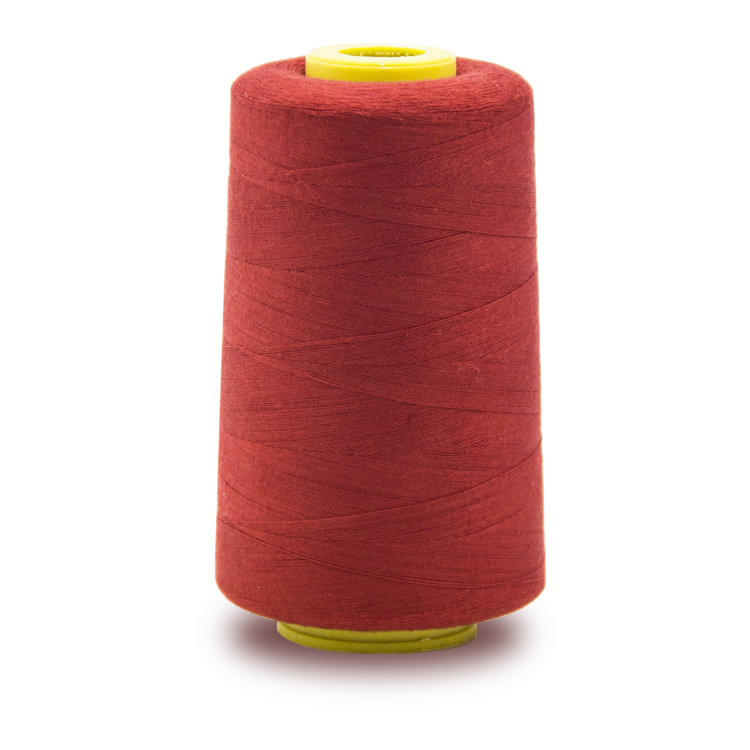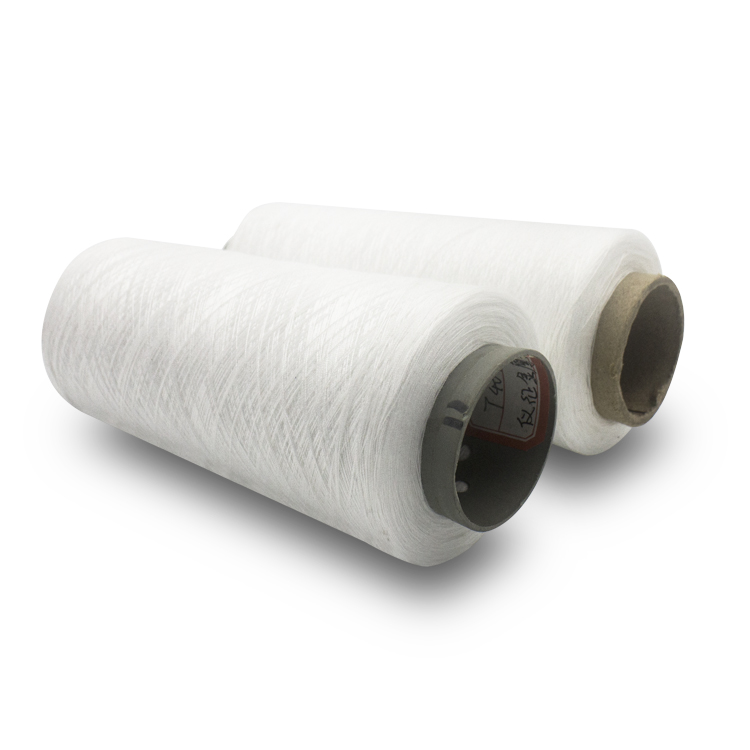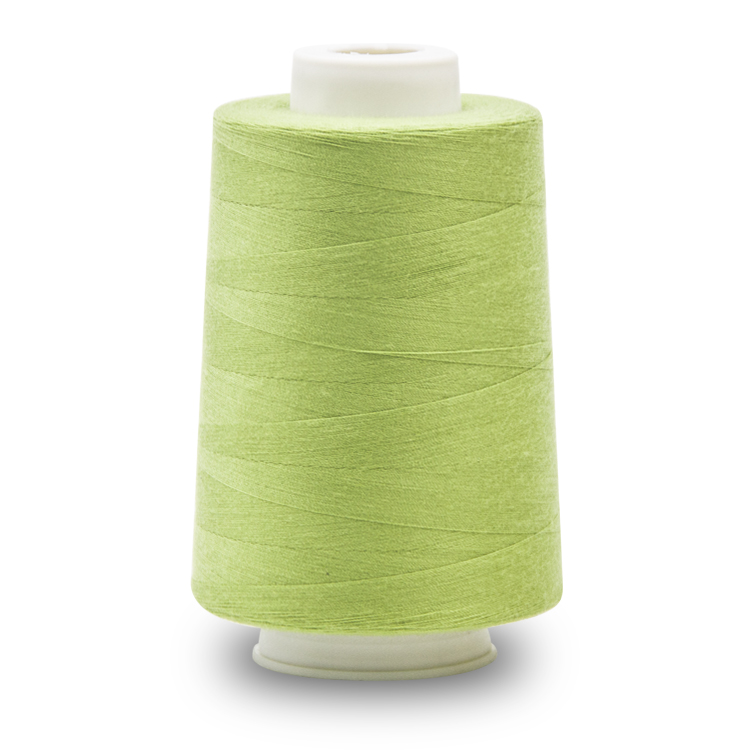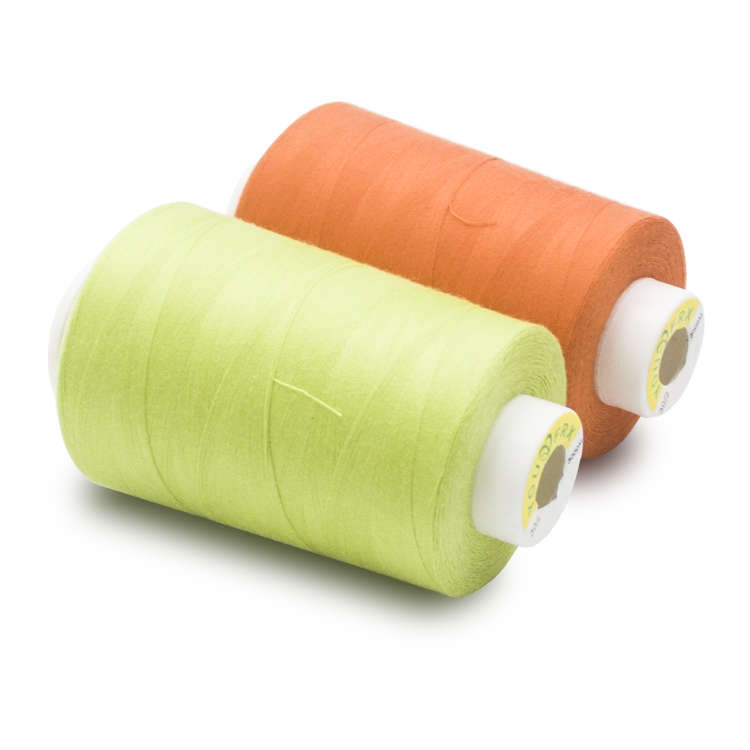
What are all kinds of fabric yarn thread in textile materials(2)
(continued above)
Nonwovens yarn thread: Thin or felt-like structures made of fibers yarn thread, yarns or filaments bonded or bonded mechanically, chemically or physically, but excluding woven, knitted, tufted and traditional felt and paper products.
Woven fabrics yarn thread: A collection of flaky yarns threads interwoven regularly by warp yarns parallel to the fabric yarn thread edge or arranged at a certain angle with the fabric edge and weft yarns perpendicular to the fabric yarn thread edge.
Arrangement density of yarn thread: Refers to the number of yarns threads per unit length.
Fabric yarn thread tightness: Refers to the percentage of yarn thread projection area to fabric area, essentially yarn coverage or coverage factor.
Fabric yarn thread density: Refers to the quality of fabricyarn thread per unit volume (g/cm3), which is the basic indicator of general material quality expression.

Fabric yarn thread structural phase: The ratio of warp buckling wave height to weft buckling wave height (hT 1/hW) is used to describe the warp and weft yarn thread buckling state in the fabric, which is called fabric yarn thread structural phase.
Shape retention of fabrics yarn thread: Usually refers to the performance of fabrics yarn thread which can maintain the original appearance characteristics for easy use and maintenance.
Wrinkle property: When fabric is rubbed and extruded, plastic bending deformation occurs to form wrinkle property, which is called wrinkle property.
Yarn thread wrinkle resistance: The ability of a fabric yarn thread to resist such creases is called wrinkle resistance.
Drapability: Fabrics yarn thread are called drapability because of the degree and shape of self-weight droop.
Shrinkage of yarn thread: The shrinkage of length and width of fabrics yarn thread is called shrinkage after they are not stained or washed and dried in normal temperature water.
The commonly used calculation formulas for textiles can be divided into fixed length formula and fixed weight formula.

Fixed length calculation formula:
(1) Daniel (D) = g/L*9000 where G is the weight of the silk thread (g) L is the length of the silk thread (m)
Tex = g / L * 1000 where G is the weight of yarn (or silk) and L is the length (meter) of yarn (or silk).
(3) dtex: dtex = g/L*9000 where G is the weight of the silk thread (g) and L is the length of the silk thread (m)
Fixed-weight formula:
(1) Metric count (N): N = L/G in which G is the weight of yarn (or silk) and L is the length of yarn (or silk) (m)
(2) British branch number (S): S = L (G * 840), where G is the weight (pound) of the silk thread and L is the length (code) of the silk thread.
2. Choose conversion formula:
(1) Conversion formula of metric expenditure (N) and Daniel (D) = 9000/N
(2) The Conversion Formula of British Branches (S) and Daniel (D) = 5315/S

(3) Conversion formula of dtex and tex: 1tex = 10dtex
(4) Conversion formula of Tex and Daniel (D): Tex=D/9
(5) Conversion formula between Tex and British count (S): tex = K/S K value: pure cotton yarn K = 583.1 purified fiber K = 590.5 polyester cotton yarn K = 587.6 cotton viscose yarn (75:25) K = 584.8 dimensional cotton yarn (50:50) K = 587.0
(6), Tex and metric number (N) conversion formula: tex = 1000/N
(7) Conversion formula of dtex and Daniel (D): dtex = 10D/9
(8) Conversion formula between dtex and British count (S): dtex = 10K/S K value: pure cotton yarn K = 583.1 purified fiber K = 590.5 polyester cotton yarn K = 587.6 cotton viscose yarn (75:25) K = 584.8 dimensional cotton yarn (S50:50) K = 587.0
(9) Conversion formulas of dtex and metric expenditure (N): dtex = 10000/N
Conversion formulas of (10), metric centimeter (cm) and inch: 1 inch = 2.54 cm
(11). Conversion formula of metric metre (M) and British code (yd): 1 code = 0.9144 metre
(12) Conversion formulas of g/m2 and m/m for silk and satin: 1m/m=4.3056g/m2
(13) Conversion formula of actual weight and pound weight of silk and satin: pound weight (1b)=weight of silk per meter (g/m)*0.9144 (m/yd)*50 (yd)/453.6 (g/yd)




